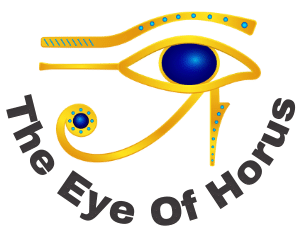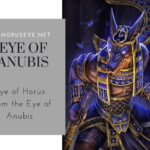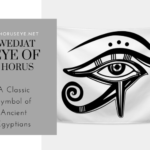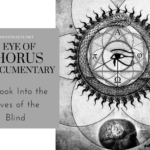Eye of Horus in The Bible, Around twenty passages in the Hebrew Bible connect the eye to evil in some capacity. The eyes in Scripture represent variously the character of a person and his moral condition.
One of the most important gods in ancient Egypt was Horus, sometimes known as Heru, Hozier, or Har. He performed a variety of roles, but the god of kingship and the sky were two of his most important ones. The eye of Horus is mentioned in the book of Exodus in the bible. In this book, the eye of Horus stands for power and defense.
The “eye of Horus” is the name for the god Horus’ left eye. According to Egyptian mythology, Isis and Osiris gave birth to Horus. He was a sky god who was occasionally shown as either a falcon or a man with a falcon’s head. Horus was associated with the sun, and it was believed that it was located in Horus’ right eye. His left eye was connected to the moon. The Israelites are instructed to paint the Eye of Horus on their doorposts in Exodus as a representation of God’s protection.
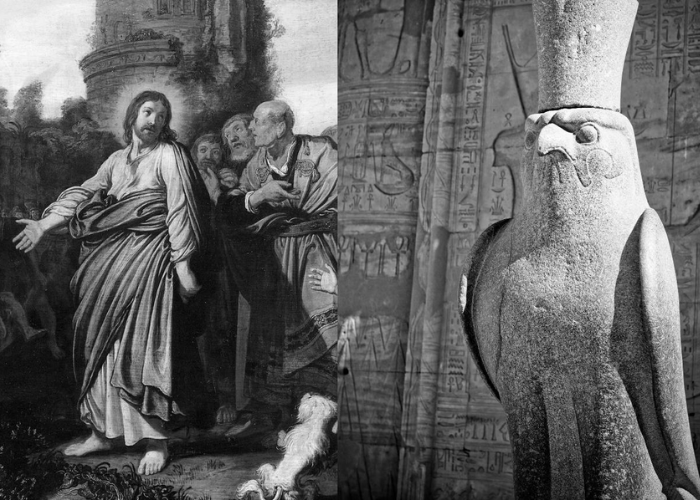
They are putting their trust in God to keep them safe by doing this. The symbol of security and abundance was the eye of Horus. The eye of Horus was engraved on the crowns of the pharaohs, who were thought to as living manifestations of Horus. The Egyptian god “Horus,” whose name is written in hieroglyphics with an eye-like symbol, is the source of the name “Horus.”
The Eye of Horus Symbolized Egyptian Mythology
Depending on how it was used, it may be interpreted as either positive or bad. The Egyptians believed that by appropriately employing this sign, the bearer may get strength or protection. Due to its usage as a symbol of evil, it earned the appellation “Ba” eye. As an example, take the incident when Set attacked Horus and severed his head in order to have him as his slave for all eternity.
Eye of Horus in The Bible:
The Eye of Horus is not directly mentioned in the Bible. The Eye of Horus is an ancient Egyptian symbol associated with the god Horus and is often used to represent protection, healing, and divine power.
The Bible, on the other hand, is a collection of religious texts and scriptures that originated in the Middle East and includes the Old Testament (Hebrew Bible) and the New Testament. While there are references to eyes in the Bible, they are not related to the Eye of Horus.
It is worth noting that there are some similarities between Egyptian and biblical themes and symbols, as the ancient Egyptians and Hebrews had some contact and cultural exchange. However, the Eye of Horus is not among them.
What Does the Bible Mean When It Uses the Term “Eye”?
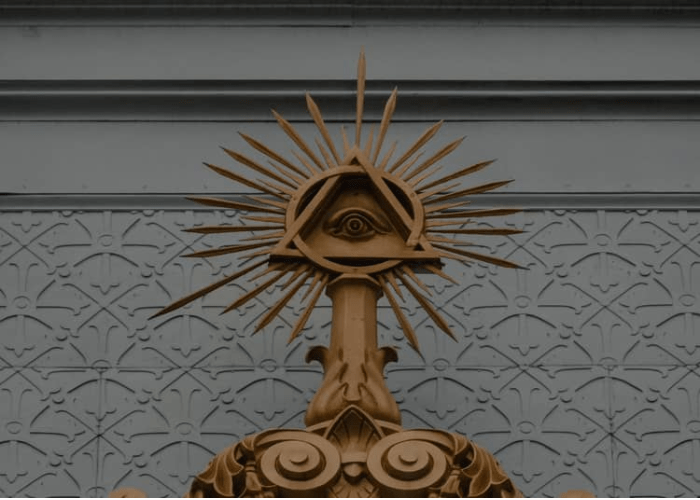
The eyes spoke of the deepest sentiments and aspirations of the heart. An “evil eye” represented a corrupt heart with negative goals of avarice, jealousy, and envy, whereas a “good eye” reflected morally pure and generous aspirations (Kotze 2007:143).
Does the Bible Endorse the “Eye for an Eye” Rule?
According to the verse in Leviticus that reads, “And if a man hurts a fellow countryman, he will be punished in kind,” he will receive a tooth under/for a tooth, an eye under/for an eye, and a fracture under/for a fracture in like manner as to which he injured someone else (Lev. 24:19–21).
The Eye of Horus Was Known to the People of Ancient Egypt.
The eye of Horus, the falcon-headed god of protection and regal authority, which may be found on amulets, jewelry, and other artifacts, is a well-known symbol in Egyptian mythology. In order to represent the power, he conferred onto those who stood to watch over it, Horus’ eye was commonly shown as a sun disc with rays coming from it.
The eye of Horus, also known as the Eye of Ra or the Eye of Re, is frequently depicted in works of ancient Egyptian art and literature. It is one of the most extensively used Egyptian symbols and one of the most well-known images of the goddess Wadjet, also known as “The Great Green One” or “The One Who Cannot Be Seen.” Wadjet, the protectors of Lower Egypt, resided on Uraeus.
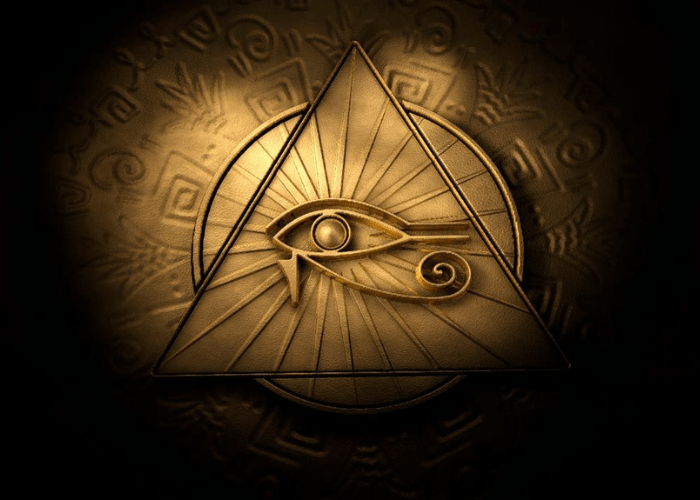
She was held in awe as a protector against chaos and evil. She was also associated with the well-known Egyptian deity Hathor, who was said to be both her sister and husband. Legend has it that when Wadjet was angry or sad, her eyes would burn with fire; when this happened, it meant that someone had greatly incensed her.
The Egyptian Icon of Royalty, Protection, and Health (The Eye of Horus Bible Verse)
The Eye of Horus served as a symbol of security, grandeur, and well-being for the ancient Egyptians. The eyes are occasionally shown as blue or green in hue, with stylized brows and eyeliner. The Bible’s Book of Exodus uses the Eye of Horus as a metaphor for God’s protective rule over the Israelites. In Exodus, while the army of Pharaoh was pursuing the Israelites, God intervened and had the sea engulf the army.
The Egyptians represented this miracle as the Eye of Horus suckling up Egypt’s adversaries. Additionally, the Eye of Horus was considered a symbol of regal might. Some versions of the story said that whoever held the Eye would be given immense wealth and power.
The Bible’s “Providence Eye” Verse: A Mysterious Symbol of Religion
The metaphor of the providential eye is seen in the Bible. It serves as a reminder that God is the all-seeing eye and is constantly watching over us. The providential eye is mentioned in a number of verses, including Psalm 33:18, Proverbs 15:3, and Matthew 6:4. In each of these readings, the providential eye represents God’s care and protection for His people.
No matter what happens in this world, we may take comfort in the fact that God is constantly watching out for us. It symbolizes God’s watchful guarding of his devotees. The illustration is usually used as proof that God is continually watching over us and guiding us through life.
Where Is Providence Stated in the Bible?
contains in the Old Testament. The inspired writers hold that God’s providence encompasses the making, running, and upkeep of every element of the created order in addition to their submission to His will [Gn 8.21-22; Jer 5.22-24; Psalm 103 (104); 148.6].

The Job Chapter perhaps has the most elegant representation of it. In order to fulfill his purpose in them, God’s providence is his tender provision for his people as he leads them on their journey of faith through life.
What Does the Bible Say About the Evil Eye and How Does It Happen?
One of the many allusions to the Evil Eye in the Bible is found in the tale of the workers in the vineyard (Matthew 20:1–15). The belief in the Evil Eye, its manifestation of hostility, and its devastating force were widespread throughout the continent throughout prehistoric times.
The Evil Eye Is a Symbol of Negativity and Bad Luck in Many Cultures.
The Bible has several references to the word “evil eye,” most notably in Matthew 6:23, where Jesus forbids bragging or concealing the truth if one has wicked eyes full of greed. In this context, the evil eye is associated with greed and jealousy, two highly negative emotions.
The evil eye is also mentioned in Deuteronomy 15:9, which says, “Be careful not to harbor an evil eye on your poor brother.” In this instance, the evil eye conjures up feelings of resentment or envy for someone who is suffering more. These negative emotions should be avoided since they might have a negative impact on relationships.
The evil eye is a notion shared by many different worldwide religions and cultures. It is a highly important symbol that denotes the chance of bad luck and negativity. If you believe you have an evil eye, there are numerous ways to protect yourself from its effects.
What Does the Biblical Term “Horus” Mean?
Osiris and Isis are the parents of Horus, the heavenly descendant of the sacred trinity. He is only one of the several deities connected to the falcon. His name is a combination of the terms “above” and “far.” The Eye of Horus is among the most important ancient Egyptian symbols. It represents the sun’s rays, which were thought to be a source of energy and life.
The insignia has taken several different versions throughout Egyptian history, notably on Egyptian coinage. The eye of Horus was a representation of protection over royalty and other deities. Ancient Egyptians believed the eye to be a representation of the sun god Ra, who had been killed by Set in a prior battle between the two gods. He thus passed on and had a new life as Horus, Ra’s son, and heir.
What Is the Bible’s Position on Wicked Eyes?
Jesus of Nazareth mentions the evil of an evil eye, one of the oldest myths in the ancient world, in his well-known “Sermon on the Mount” (Matthew 6:22–23): However, if your vision is poor, darkness will encompass your body. Jesus also makes mention of the Evil Eye in his parable.
The conviction that the evil eye in the Bible
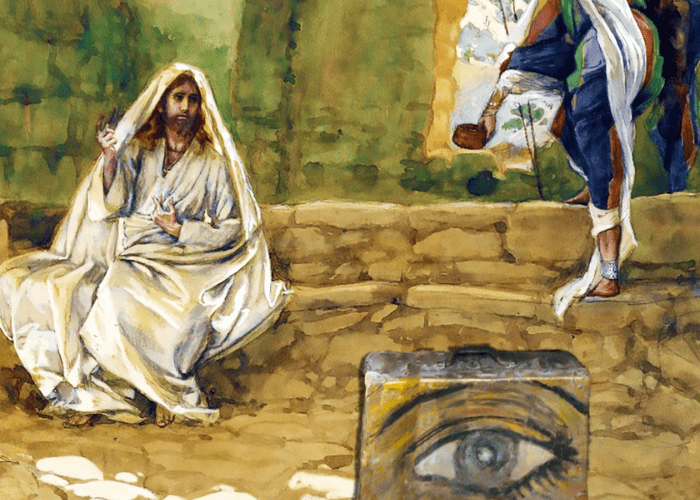
Although the Bible does not specifically mention the evil eye, it does admonish us from wishing we had what others have (Proverbs 23:5; James 4:2). In many cultures, there is a very real belief known as the evil eye. Scripture doesn’t directly address the evil eye, even if Christians are allowed to have that belief. The Qur’an has several verses that caution readers about the dangers of envy and jealousy, which are said to be the primary causes of the evil eye.
Proverbs 14:30 states of those who are envious of their neighbor’s prosperity, “Jealousy rots the bones, but a tranquil heart gives life to the body.” There is anarchy and every wicked activity “where there is jealously and self-centered desire,” according to James 3:16. Therefore, even while the Bible doesn’t directly address the evil eye, it does include many warnings concerning the actions that might lead to it.
Of course, Christians are not limited by any superstitions. We don’t need to believe that the evil eye has any influence if we want to be faithful followers of Christ. But if we sincerely believe in its potential, there is nothing wrong with it as well. After all, Jesus is said to have cast out demons with the power of his speech (Mark 1:25-26). Consequently, if we believe that God can defend himself and fend off demons with even something as seemingly innocuous as a gaze.
What the Bible Has to Say About Battling Evil?
The Lord will watch over you and keep you safe even if you don’t deserve it. The Good News: Because people who do so genuinely love Him and realize His power, God is so delighted with you when you seek Him in difficulty.
What Is Spoken About Sumerians in the Bible?
Genesis 10:10 and other passages are the only places in the Bible where Sumer is mentioned. Before Assyriologist Jules Oppert (1825-1905 CE) correlated the biblical link to the Sumerian province of southern Mesopotamia, the majority thought that Genesis 10:10 was referring to the area around Babylon.
Is Sumerians the Basis for the Bible?
Early chapters of the Hebrew Bible contain certain tales that strikingly resemble Sumerian myths. For instance, the biblical tale of Noah and the Great Deluge and the Sumerian account of the flood that was discovered on a Sumerian tablet in Nippur have a number of parallels.
The evil eye is a belief that if you look at someone, you could get hurt or have bad luck. Numerous societies and religions, such as Christianity, Ancient Sumerian culture, and Ancient Egyptian culture, have displayed this. When Gilgamesh meets Enkidu in the Epic of Gilgamesh and counsels him to shield his eyes from other people’s envious gaze, he makes reference to the evil eye in Sumerian literature.
How to Avoid the Negative Superstition of the Evil Eye
It was believed that the evil eye had magical properties that might cause illness and bad luck. Ancient Greeks thought that gazing at someone who was about to become ill may really make them feel worse. It was common practice to place an evil eye amulet or charm over a patient’s eyes during medical operations since it was thought to cause sickness by causing blood to bleed from the patient’s face.
This specific form of magic fell out of usage as Christianity gained influence during the Middle Ages in Europe. The Evil Eye has been a part of human culture from the beginning of time and is still extensively used today. The Evil Eye is a powerful energy that has the power to significantly influence anyone who believes in it. It is presumptively due to fear, jealousy, or envy.
The Evil Eye in Every Part of Sumer
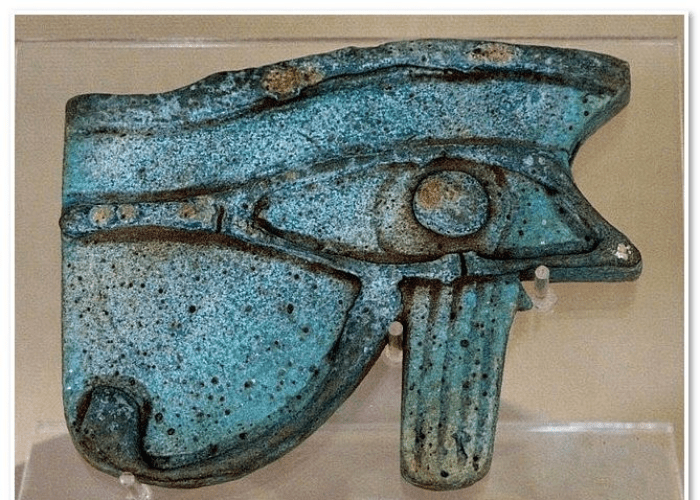
Throughout Sumer and beyond, the phrase “The Evil Eye” refers to the notion that a malicious gaze or curse might harm a person. This concept is prevalent in many communities, including those of the Sumerian, Babylonian, Assyrian, and Hittite peoples of prehistoric Mesopotamia.
Ancient Greeks and Romans believed that the evil eye was active, as did Egypt and other Arab nations. Some societies still harbor a dread of the evil eye. The concept of the Evil Eye has existed since Sumerian antiquity. A person may give you the Evil Eye, which is said to bring bad luck if they look at you with envy or jealousy.
The Evil Eye is still widely believed to exist today in many civilizations and is still practiced in many parts of the world. One way to protect against the Evil Eye is by wearing amulets or talismans. Some people also believe that certain colors, like blue, may ward off the Evil Eye.
Ancient Sumerian Mythology and Culture
The evil eye belief has its roots in the mythology and culture of the ancient Sumerian people. In this ancient civilization, the four distinct types of eyes were regarded as benign, neutral, malicious, and wicked. The belief held that the benign eye brought good fortune, the neutral eye brought luck, the malevolent eye brought bad fortune, and the evil eye brought disaster.
What Does the Bad Omen Represent?
The evil eye has taken on many meanings in modern society as a result of its connection to the unpleasant feelings of envy and jealousy (negative emotions). It also symbolizes fear since many people believe that if they have an evil eye on them, their good fortune would be taken away and replaced with bad luck. The evil eye is still often employed by individuals who continue to believe in its efficacy.
Many people still hold the view that those who believe they are being observed by someone in their mirror or someone else’s eyes will experience bad luck. A person is said to have an evil eye if they give or receives offensive glances, gestures, or stares. The word “evil” originates from the Egyptian god of evil Anubis, often referred to as “The Watcher on the Threshold.”
What Is the Evil Eye and How Can It Affect You?
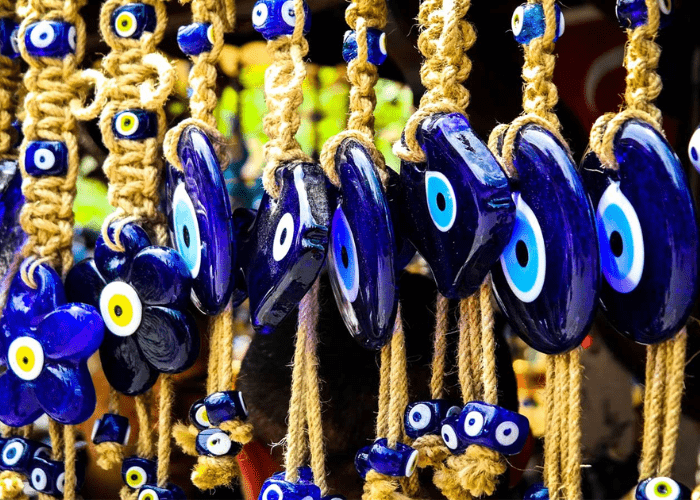
The Malevolent Eye is commonly referred to as a “summoning” spell since it is believed that the person casting it has the power to summon spirits—either good or evil. You may even use the evil eye on those who are already in your life if they are near enough. In ancient Egypt, the Evil Eye was thought to be the root of illness and bad luck.
If they gave you the evil eye, there would be no possibility for them to recover from sickness or from whatever disaster may have befallen them. No matter how hard someone tried to better oneself or win over their enemies, it was believed that they would fail at both if they had an evil eye on them.
If someone had an evil eye on them and could see it reflected in your eyes but refused to acknowledge it, it meant that they were suffering a curse as a kind of revenge from those who cast their eyes upon them.
Ancient Sumerian Mythologies: Examining the Dangers of a Single Glance
The concept of the Evil Eye dates back to the Sumerian era when it was believed that an individual’s sight may cause them harm. If a person looked at someone else for a long time, it was also believed that they would become ill or die. In ancient Egypt, the evil eye was associated with the goddess Sekhmet (also known as Bastet), who had a lion’s head and a woman’s body with cow horns.
This was seen as her protector in the struggle against those who anticipated her retribution. The concept of the Evil Eye is widespread and extremely old. It’s believed that if someone touches or glances at you, their eye or, on rare occasions, their entire hand, might hurt you.
